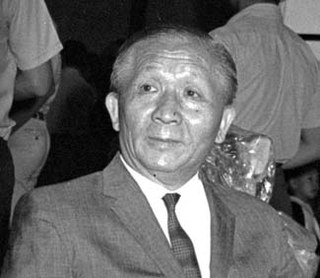A Quote by Bill Moyers
There is a historic strain of dominion theology which says, taking its references from the Psalms, that man is made just a little lower than God, and that we are the crown of creation. That interpretation has come at the expense of the one that says when God, in the story of Noah, intervened to save human life against the flood, against the acts of nature, He did not stop with human beings. He made sure that every kind of animal was represented twice on that ark.
Related Quotes
Interestingly, God's remedy for Elijah's depression was not a refresher course in theology but food and sleep... Before God spoke to him at all, Elijah was fed twice and given a good chance to sleep. Only then, and very gently, did God confront him with his error. This is always God's way. Having made us as human beings, He respects our humanness and treats us with integrity. That is, He treats us true to the truth of who we are. It is human beings and not God who have made spirituality impractical.
[Christian rebellion] arises from the doctrine of mankind made in the image of God, and therefore protests against all forms of dehumanization. It sets itself against the social injustices which insult God the Creator, seeks to protect human beings from oppression and longs to liberate them… it protests against every authoritarian regime, whether of the left or of the right, which discriminates against minorities, denies people their civil rights, forbids the free expression of opinions or imprisons people for their views alone.
I am not religious, but I am a pious man... A religious man has a definite religion. He says "God is there" or "God is there," "God is there." "Your god is not my god, and that's all." But the pious man, he just looks out with awe, and says, "where is God?" And "well, I don't understand it and I would like to know what this creation really means." That is a pious man, who is really touched by the greatness of nature and of the creation.
There is that in the soul of man which must respond to the highest in virtue. It may not respond at once. Human nature can easily be over-faced by examples too remote and austere. Moreover, human nature can easily deny God because the whole race has long been in rebellion against Him. Yet there is that in human nature which calls out to the supreme examples of virtue: owns, as it were, the intention of God who made it, and feels the unmistakable homesickness of the soul.
And people who believe in God think God has put human beings on earth because they think human beings are the best animal, but human beings are just an animal and they will evolve into another animal, and that animal will be cleverer and it will put human beings into a zoo, like we put chimpanzees and gorillas into a zoo. Or human beings will all catch a disease and die out or they will make too much pollution and kill themselves, and then there will only be insects in the world and they will be the best animal.
Christ is of two natures, the human and the divine, and we are the same: we are of the human nature, but covered with the divine. He is the God-man, and we are the God-men. He is the ark made of wood covered with gold, and we are the boards made of wood covered with gold. In number we are different, but in nature we are exactly the same.
It's natural to be skeptical of a story like Noah. However, the greatest miracle in the Bible is not Noah and the flood. The greatest miracle in the Bible is recorded in the first verse: "In the beginning God created the heavens and the earth." If that miracle is true, then every miracle in the Bible is at least possible (including Noah's Ark). If God created the universe, then He can do whatever He wants inside it.
I never looked at Noah as an animal collector. I always thought of him as an apocalyptic character. I read everything I found about it and was surprised to find that in all religions there is the story of the flood, and that one "hero" saved the world. This proved that Noah and his Ark - were not a religious myth, and is evidence that humanity really went through the flood.
Louis XIV was very frank and sincere when he said: I am the State. The modern statist is modest. He says: I am the servant of the State; but, he implies, the State is God. You could revolt against a Bourbon king, and the French did it. This was, of course, a struggle of man against man. But you cannot revolt against the god State and against his humble handy man, the bureaucrat.
Taking care of our planet is like taking care of our houses. Since we human beings come from Nature, there is no point in our going against nature, which is why I say the environment is not a matter of religion or ethics or morality. These are luxuries, since we can survive without them. But we will not survive if we continue to go against nature.
Your attitude should be the same as that of Christ Jesus: Who being in very nature God, did not consider equality with God something to be grapsed, but made himself nothing, taking the very nature of a servant, being made in human likeness. And being found in appearnace as a man, he humbled himself and becamse obedient to death-even death on a cross!
































